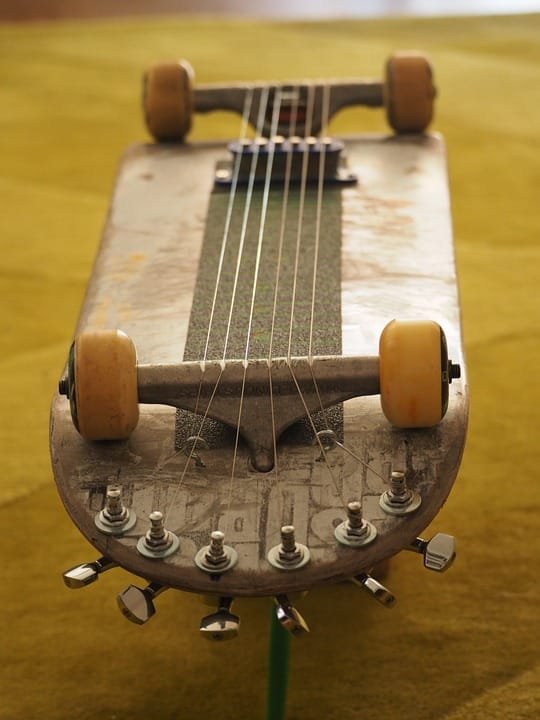Here are the top ethical fashion trends that are changing the game:
As I began my journey into sustainable fashion, I was shocked by the devastating impact that fast fashion has on our planet. From clogged landfills to polluted waterways, the fashion industry’s wasteful practices have far-reaching consequences. But amidst the chaos, I discovered a world of eco-friendly brands, thrift shopping, and DIY clothing that not only benefits the environment but also fosters a sense of community and self-expression.
The Impact of Fast Fashion
Did you know that the fashion industry is responsible for 10% of global greenhouse gas emissions? That’s more than the entire airline industry! Fast fashion, which prioritizes cheap and trendy clothes over sustainability, is a significant contributor to this problem. In fact, it’s estimated that the average American generates about 82 pounds of textile waste per year. This staggering statistic prompted me to explore alternative fashion practices that prioritize the well-being of our planet.
Eco-Friendly Materials
One of the most significant changes I made was switching to eco-friendly materials. From recycled polyester to organic cotton, there are countless options available that prioritize sustainability. Take, for example, the innovative brand, Patagonia, which uses environmentally-friendly materials in their production process. Their website even provides a "Worn Wear" section, where customers can buy and sell gently used Patagonia gear, reducing waste and extending the life of their products.
[Image: Patagonia’s Worn Wear initiative]Slow Fashion
Another game-changer I discovered was slow fashion. This approach prioritizes quality over quantity, encouraging consumers to invest in timeless, high-quality pieces that won’t end up in landfills. The concept is simple: take your time, focus on a few statement pieces, and learn to repair and maintain your clothes to extend their life. Slow fashion is all about embracing the process, not the product.
Upcycling
Upcycling is another creative way to reduce waste and extend the life of your clothes. I transformed an old t-shirt into a reusable tote bag, a worn-out sweater into a cozy scarf, and even turned a vintage dress into a unique quilt. Upcycling not only reduces waste but also sparks creativity and self-expression. You can find countless tutorials and inspiration online to get started.
[Image: Upcycled tote bag]Thrift Shopping
Thrift shopping is another essential aspect of sustainable fashion. Not only do you get to score amazing deals on high-quality pieces, but you also reduce waste and support local communities. I’ve found everything from designer gowns to vintage accessories at thrift stores, and the thrill of the hunt is all part of the fun!
Tips for Sustainable Fashion
Ready to make the switch to sustainable fashion? Here are some actionable tips to get you started:
- Research eco-friendly brands and their practices
- Invest in high-quality, timeless pieces
- Thrift shop and second-hand stores for unique finds
- Upcycle and repurpose old clothes
- Learn to repair and maintain your clothes to extend their life
- Donate or recycle unwanted items
Conclusion
Sustainable fashion is more than just a trend – it’s a commitment to conscious living and self-expression. By adopting eco-friendly materials, slow fashion, upcycling, and thrift shopping, we can reduce waste, support local communities, and prioritize the well-being of our planet. Join me on this journey, and let’s make a difference, one outfit at a time!
Frequently Asked Questions
Q: How do I get started with sustainable fashion?
A: Start by researching eco-friendly brands, thrift shopping, and upcycling. You can also take small steps like switching to eco-friendly materials or investing in high-quality, timeless pieces.
Q: Is sustainable fashion more expensive?
A: While some sustainable fashion brands may be more expensive, there are many affordable options available. Thrift shopping and second-hand stores can also be a great way to find unique pieces at a lower cost.
Q: Can I still wear fast fashion and be sustainable?
A: While it’s possible to incorporate some fast fashion into your wardrobe, it’s essential to prioritize sustainable practices. Consider buying second-hand, swapping with friends, or upcycling old clothes to reduce waste.
Q: How can I maintain my clothes to extend their life?
A: Learn to repair and maintain your clothes to extend their life. You can also consider dry cleaning or hand washing delicate items.








Leave a Reply